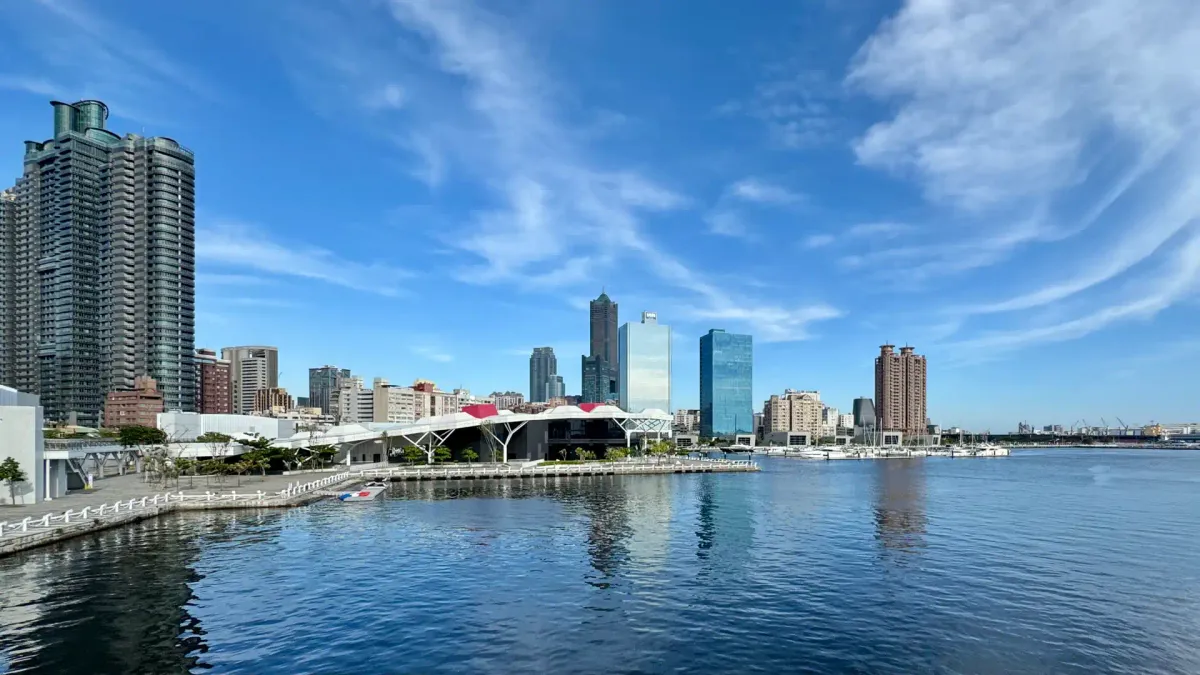Definitely maybe
Polite uncertainty in a conflict-averse culture…

One of the things I like—really like—about Taiwan is the culture of indirectness and conflict avoidance. This is something many foreigners find confusing or even infuriating, but for me, it feels like a good fit.
On my first trip to Taiwan in 2018, I was crossing a busy street in Taipei when a teenager approached me from the other direction and we did that awkward step-left/step-right thing, before both stepping to the same side. In the middle of the road, this teenager—who looked like a wannabe gangster—then stopped, smiled, and bowed before moving on.
I’ve since learned this kind of sorry-to-trouble-you/face-saving approach is common in Taiwan. I appreciate how it greases the wheels of social interaction by demonstrating deference to strangers.
But it can definitely be confusing…
You might not like the washing machine
This YouTube video by Get Up. Get Out. Get Gone! outlines a cascading sequence of reasons given by prospective landlords, for denying them apartments in Tainan City:
- “My English isn’t good enough”
- “You’re not married”
- “If you are married and you divorce, one of you might commit suicide”
- “You don’t have a motorbike”
- “You might not like the washing machine”
I’ve also heard of someone being rejected because the landlord said they had an appointment for a haircut on the day that would be optimal for lease-signing.
These comments can seem absurd. But they have a dual purpose:
- Avoiding direct conflict
- Helping the rejected person save face
That second point is especially pertinent. More than anywhere else I’ve been, people in Taiwan seek to avoid discomforting others around them.
Obviously I’m generalizing—but this level of deep, instinctive thoughtfulness seems to be pervasive.
It’s hotter in summer
Something I noticed in my early days in Taiwan—when I was actively meeting new people and getting to know them—was the Taiwanese art of the non-sequitur Q&A.
I might ask someone “Why is Taiwan so safe?” and they might give me a series of long explanations about how:
- The garbage trucks come twice a day so it’s easy to dispose of trash
- Shopping malls are busiest on weekends
- It’s hotter in summer
Their circuitous, irrelevant answers left me confused. I felt there was a misunderstanding. But rephrasing the question in simpler English just resulted in more tangential factoids.
It took me a long time to understand what was happening—and I came to regret my persistent questioning. People simply didn’t know the answer, or they wanted to avoid a delicate topic.
I was making them uncomfortable when they were unable or unwilling to address the question. But they wanted to save face and be helpful, so they gave me information nonetheless.
Even when the answer was not an answer at all.
Definitely maybe
Taiwanese indirectness happens online, too.
Here in Taiwan, the LINE messaging app is ubiquitous. I installed it on arrival, back in January 2023.
Searching my message history for the word ‘maybe’, I get 14,806 results.
That’s 494 maybes a month.
Plus a few dozen more if I also search for ‘可能’ (which is ‘maybe’ in Chinese). I don’t even want to search for possibly, probably, and if…
Even with my partner, the ‘maybe’ count has reached 6,680. In New Zealand, this would be interpreted as some kind of fault in our relationship—an inability to say what we want or mean.
But here in Taiwan, it’s not that at all. It’s just how we talk.
And I feel justified in saying ‘we’. Possibly because polite uncertainty in a conflict-averse culture might be kind-of how I seemingly talk now. Maybe.
